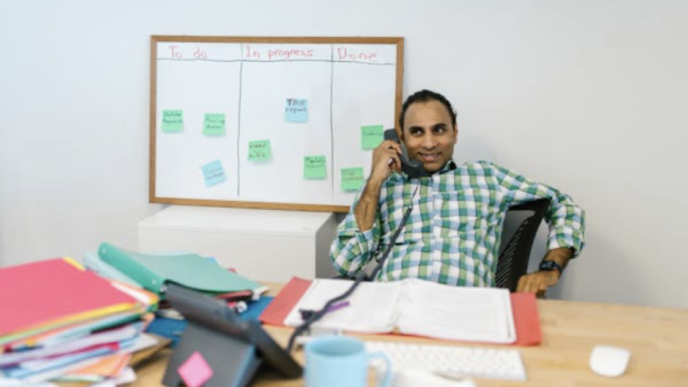Some of us often feel pressured to say “yes” to every request. We want to be helpful, accommodating, and avoid disappointing others. But have you ever stopped to think how often saying “yes” leaves you overwhelmed, overcommitted, and ultimately less productive?
Learning to say “no” can boost your productivity. And by saying “no,” I don’t mean rejecting every request but prioritizing what truly matters, conserving your energy, and creating space for more meaningful and focused work.
In this article, we’ll explore how saying no can transform your productivity and offer you a sense of control over your time.
The Trap of Saying “Yes”
A lot of us fall into the trap of saying “yes” out of a sense of obligation or fear of missing out (FOMO). We agree to tasks that don’t align with our goals or end up overcommitting to projects that drain our time and energy.
Though each “yes” may seem small, they add up quickly to fill your schedule with tasks that do not align with your primary objectives.
Every time you say “yes” to something, you are essentially saying “no” to something else, which could be your own priorities. This results in a cluttered to-do list, constant multitasking, and a nagging feeling of not getting things done.

How Saying “No” Can Boost Your Productivity
1. Creates Boundaries for Focus
When you limit the number of tasks you take on, you can focus more intensely on the tasks that matter most. Focused work leads to higher-quality results, which can drastically improve your efficiency.
Think of your brain like a computer. If it’s running too many programs at once, it starts to lag. But if you close unnecessary applications, it works faster and more efficiently. Similarly, saying “no” helps you shut down non-essential tasks so you can allocate your mental and physical energy to more important projects.
2. Preserves Mental Energy
Research shows that decision fatigue (the depletion of energy that comes from making too many decisions) can significantly affect your productivity.
Saying “no” reduces the number of decisions you have to make and preserves your mental energy for high-priority tasks. You only have so much mental energy in a day, so why waste it on things that don’t move the needle?
3. Prevents Burnout
Saying “yes” to everything can quickly lead to burnout. You may find yourself overworked, stressed, and less effective in your role. But saying “no” to non-essential tasks gives you the space to rest, recharge, and return to your work with renewed focus.
4. Allows Time for Deep Work
Deep work refers to the ability to focus on cognitively demanding tasks without distractions. However, deep work requires time and concentration. If your day is filled with back-to-back meetings, responding to emails, and other low-impact tasks, you’ll find it hard to dive deep into meaningful projects.
5. Boosts Decision-Making
When you constantly say “yes,” you’re more likely to rush through decisions just to get things done. On the other hand, when you say “no” to less important matters, you can devote more attention to the decisions that truly matter, leading to better choices.
Practical Tips on How to Say “No”
Saying “no” is tough to put into practice, especially if you’re used to saying “yes.” Here are some tips to help you!
1. Be Polite but Firm
It’s important to be respectful when declining an invitation or request. You don’t want to burn bridges, but you also need to be firm. A polite “Thank you for thinking of me, but I’m unable to take this on right now” works very well.
2. Offer an Alternative
If you want to soften the blow, offer an alternative solution. For example, you can say, “I can’t help with this right now, but I can refer you to someone who might be able to assist.”
3. Practice Saying “No”
Start small by saying “no” to minor requests that don’t align with your goals. Over time, you’ll build the confidence to decline more significant requests without hesitation.

4. Prioritize Your Commitments
Write down your current commitments and evaluate which ones are truly worth your time and effort. If you see a new task that doesn’t align with your goals, be firm in saying “no.”
5. Use a Delay Tactic
If you’re unsure whether to say “yes” or “no,” ask for time to think it over. This gives you a chance to assess whether the request fits into your schedule and aligns with your priorities.
In Conclusion,
Saying “no” more often is a powerful tool for increasing productivity, reducing stress, and improving your overall well-being. By setting healthy boundaries and prioritizing your own needs, you can create a more balanced and fulfilling life.
Remember, every time you say “no” to something non-essential, you’re saying “yes” to your success.














